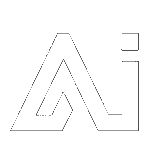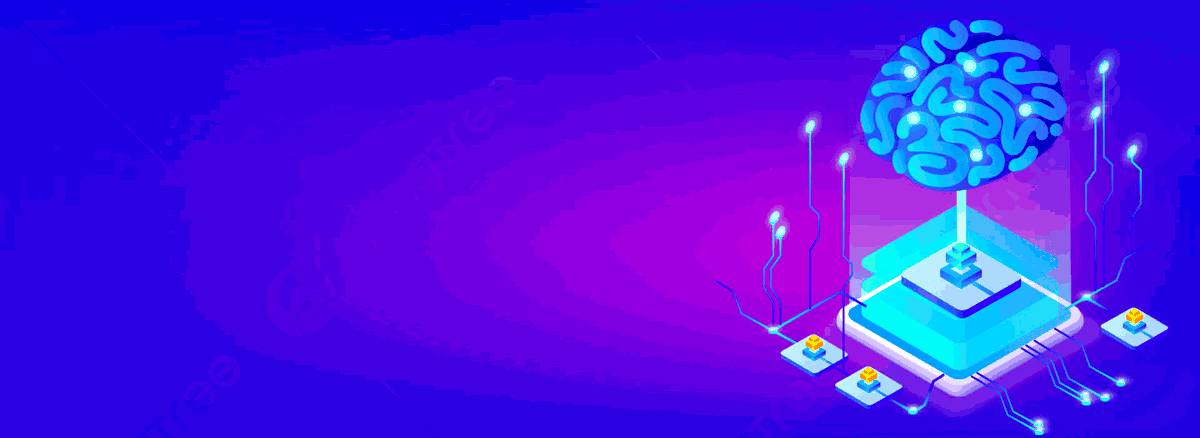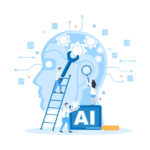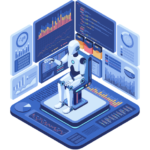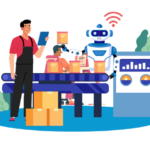How to add AI skills to your software development team: leverage specialized courses, nurture in-house expertise, and foster a growth mindset.
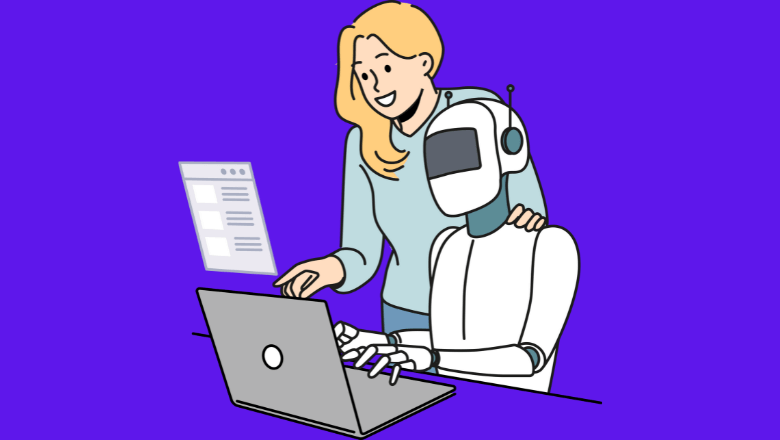
Incorporating artificial intelligence (AI) into a software development team can seem daunting, but the benefits are immense. With the right approach, your team can leverage AI to optimize workflows, increase efficiency, and create innovative solutions.
Key Takeaway: Identify the AI Skills Needed in Your Team
Before diving into AI, it’s essential to understand the skills required for artificial intelligence engineers and machine learning developers. Some in-demand skills include:
- Programming languages (Python, R, Java, C++)
- Data analysis and visualization
- Machine learning algorithms
- Deep learning frameworks (TensorFlow, PyTorch)
- Natural language processing (NLP)
- Computer vision
- Reinforcement learning
Exemplify: Real-Life Scenario
Suppose your company wants to develop a recommendation engine for an e-commerce website. In this case, the team should have a strong understanding of machine learning algorithms, data analysis, and programming languages like Python or Java.
Pro Tip: Invest in Continuous Learning
Keep your team updated with the latest AI developments, trends, and technologies by investing in workshops, online courses, and conferences.
Key Takeaway: Implement AI Tools for Software Development
Leverage AI tools for software development to streamline processes and improve product quality. Some popular AI-powered tools include:
- Bug prediction and detection tools
- Automated code review and analysis tools
- Code generation tools
- Intelligent Integrated Development Environments (IDEs)
Exemplify: AI-Powered Code Review
An AI-powered code review tool can analyze code changes, identify potential issues, and provide suggestions for improvement. This helps developers write better code, reducing the time spent on manual reviews and debugging.
Pro Tip: Evaluate AI Tools Carefully
When selecting AI tools, consider factors like ease of use, integration with existing workflows, and the level of support provided by the tool’s developers.
Key Takeaway: Training and Upskilling Your Team
For software developers going into AI, proper training and upskilling are crucial. Here are some strategies to help your team acquire AI skills:
- Offer in-house workshops and training sessions
- Encourage team members to take online courses and certifications
- Promote knowledge sharing and collaboration
- Bring in AI experts for mentorship and guidance
Exemplify: Online AI Courses
There are numerous online platforms offering AI and machine learning courses, such as Coursera, Udacity, and edX. Encourage your team to enroll in these programs to develop the necessary skills.
Pro Tip: Foster a Culture of Learning
Create a supportive learning environment where team members feel comfortable asking questions and sharing their AI knowledge with others.
Key Takeaway: Hiring AI Talent
Hiring new team members with AI expertise can bolster your team’s capabilities. Here’s how to find the right talent:
- Craft clear and specific job descriptions, outlining the required skills and responsibilities
- Tap into your network and reach out to AI communities for potential candidates
- Offer competitive salaries and benefits
- Use platforms like LinkedIn, Indeed, and Glassdoor to find skilled candidates
Exemplify: AI/ML Developer Job Description
A well-crafted job description for an AI/ML developer should include details on required skills, such as programming languages, machine learning frameworks, data analysis, and problem-solving abilities.
Pro Tip: Look for Soft Skills
When hiring, consider candidates’ soft skills, such as
communication, adaptability, and critical thinking. These traits are crucial for successful collaboration and innovation within the team.
Key Takeaway: Integrating AI into Your Software Development Process
Once your team has the necessary skills and tools, it’s time to integrate AI into your software development process. Here’s how to do that effectively:
- Identify areas where AI can have the most significant impact
- Develop a clear roadmap for AI implementation
- Encourage collaboration between AI and non-AI team members
- Monitor progress and iteratively refine your approach
Exemplify: AI in Quality Assurance
Integrating AI into quality assurance can enhance software testing by automating repetitive tasks, identifying potential issues more quickly, and reducing human errors.
Pro Tip: Start Small and Scale Gradually
Begin by implementing AI in specific areas and gradually scale up as your team becomes more proficient and comfortable with the technology.
Key Takeaway: Understand the Pros and Cons of AI in Software Development
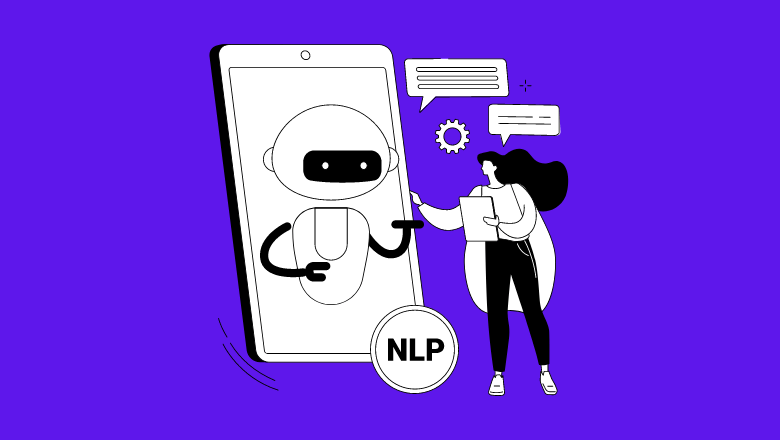
It’s essential to recognize the advantages and drawbacks of incorporating AI into your software development team. Here are some pros and cons:
Pros:
- Improved efficiency and reduced development time
- Enhanced code quality and bug detection
- Ability to tackle complex problems and develop innovative solutions
Cons:
- Steep learning curve and the need for continuous upskilling
- High initial investment in training, tools, and talent
- Ethical considerations related to data privacy and AI bias
Exemplify: AI Bias
AI algorithms learn from data, which can sometimes contain biases. This may lead to biased predictions or recommendations, potentially harming users or perpetuating existing inequalities.
Pro Tip: Addressing AI Ethics
Develop guidelines and best practices within your team to address ethical concerns and ensure responsible AI development.
Key Takeaway: Leveraging AI for Optimal Decision Making
Seasoned AI professionals understand that one of the most significant benefits of AI is its ability to enhance decision making in the software development process. Here’s how to harness this potential:
- Incorporate AI-driven analytics to prioritize features and improvements
- Use AI-powered simulations to estimate the impact of changes and updates
- Implement AI-enabled A/B testing to optimize user experience
Exemplify: Predictive Analytics
Predictive analytics, powered by AI algorithms, can analyze historical data to identify patterns and trends. This can help your team make data-driven decisions about which features to prioritize, ultimately improving the overall product.
Pro Tip: Foster a Data-Driven Mindset
Encourage your team to embrace a data-driven mindset, utilizing AI-generated insights to inform decision-making and drive innovation.
Key Takeaway: Developing AI Governance Frameworks
As an AI expert with extensive experience, you’ll be aware of the importance of governance frameworks when implementing AI in your software development team. These frameworks ensure AI systems are developed, deployed, and maintained responsibly. Here’s how to create an AI governance framework:
- Establish guidelines for AI system transparency, fairness, and accountability
- Define the roles and responsibilities of AI developers, users, and stakeholders
- Develop procedures for auditing and monitoring AI system performance and ethics
- Create feedback loops for continuous improvement
Exemplify: AI Transparency
An AI governance framework should include guidelines for AI system transparency, ensuring that the team can understand and explain the underlying logic and rationale of the AI system’s decisions.
Pro Tip: Involving Stakeholders
Involve relevant stakeholders, including developers, users, and external experts, in the development and review of your AI governance framework to ensure a comprehensive and well-rounded approach.
Key Takeaway: AI-Driven DevOps (AIOps)
AI can play a significant role in enhancing DevOps practices, streamlining operations, and automating routine tasks. AIOps combines AI, machine learning, and data science to optimize IT operations and the software development lifecycle. Here’s how to implement AIOps in your team:
- Automate infrastructure provisioning, scaling, and management
- Use AI-driven monitoring tools to detect and resolve issues proactively
- Implement AI-powered analytics to optimize resource allocation and utilization
Exemplify: AI-Driven Incident Management
AIOps can help automate incident management by analyzing logs and metrics to identify patterns and anomalies. This can lead to faster detection and resolution of issues, minimizing downtime and improving system stability.
Pro Tip: Integrating AI and DevOps
To fully realize the benefits of AIOps, ensure a seamless integration of AI technologies with your existing DevOps practices and tools.
Wrapping up
Incorporating AI into your software development team requires careful planning, strategic investments, and continuous learning. By following the best practices outlined in this essay, you can successfully add AI skills to your team and unlock new possibilities in software development.
Remember to stay up-to-date with the latest advancements in AI and foster a culture of learning and collaboration within your team. With the right approach, your team will be well-equipped to tackle complex problems and create innovative, AI-driven solutions.
Jane Watson is a seasoned expert in AI development and a prominent author for the “Hire AI Developer” blog. With over a decade of experience in the field, Jane has established herself as a leading authority in AI app and website development, as well as AI backend integrations. Her expertise extends to managing dedicated development teams, including AI developers, Machine Learning (ML) specialists, and other supporting roles such as QA and product managers. Jane’s primary focus is on providing professional and experienced English-speaking AI developers to companies in the USA, Canada, and the UK.
Jane’s journey with AI began during her time at Duke University, where she pursued her studies in computer science. Her passion for AI grew exponentially as she delved into the intricacies of the subject. Over the years, she honed her skills and gained invaluable experience working with renowned companies such as Activision and the NSA. These experiences allowed her to master the art of integrating existing systems with AI APIs, solidifying her reputation as a versatile and resourceful AI professional.
Currently residing in the vibrant city of Los Angeles, Jane finds solace in her role as an author and developer. Outside of her professional pursuits, she cherishes the time spent with her two daughters, exploring the beautiful hills surrounding the city. Jane’s dedication to the advancement of AI technology, combined with her wealth of knowledge and experience, makes her an invaluable asset to the “Hire AI Developer” team and a trusted resource for readers seeking insights into the world of AI.
